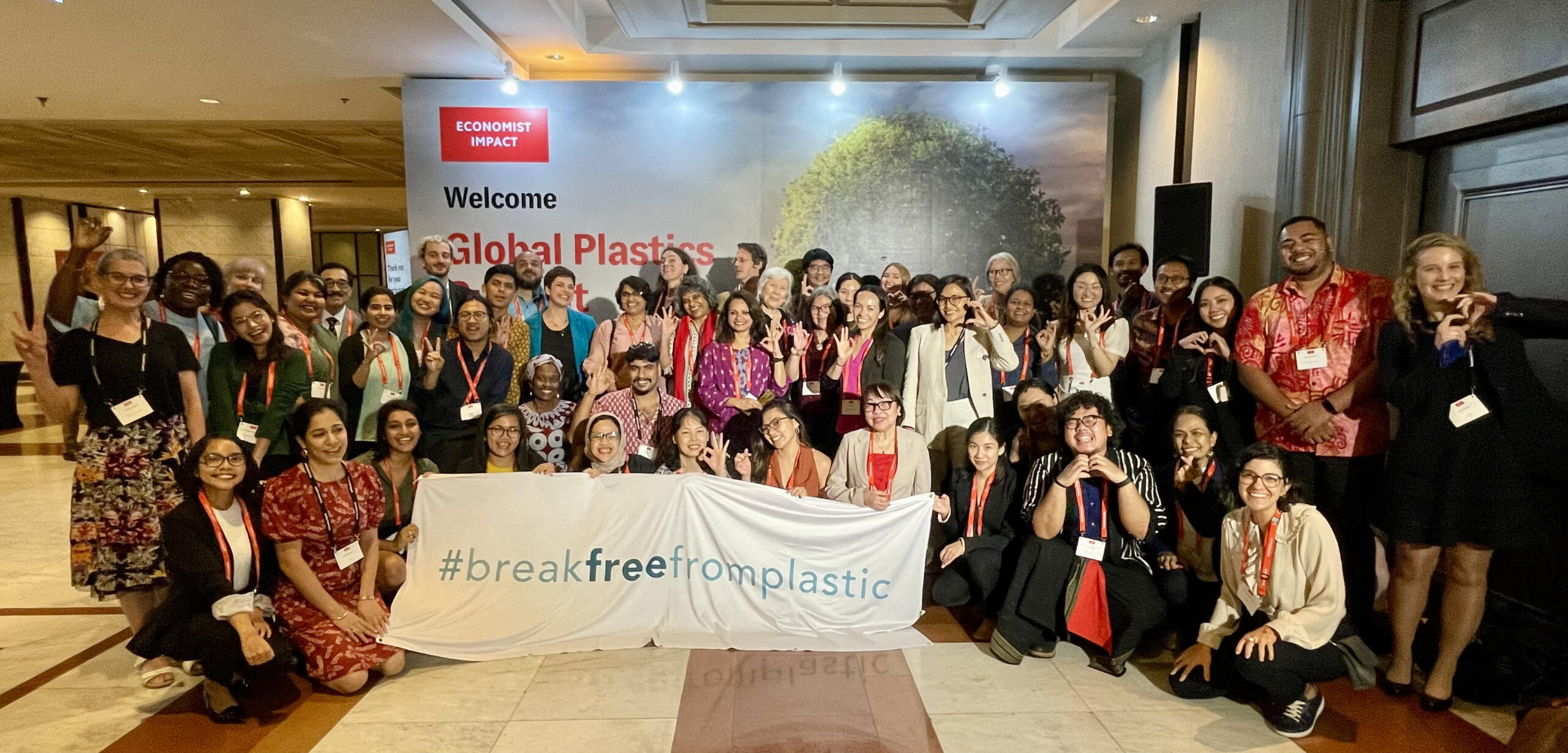In the context of the Global Plastics Treaty UN negotiations, on November 10th, the Economist Impact released an event summary from the Global Plastics Summit held with dozen of country delegates and key stakeholders on October 11-12th in Bangkok, ahead of the third round of treaty negotiations in Kenya in November.
The Economist’s summit summary provides an opportunity to continue bringing important issues such as plastic production reduction, human health measures, and reuse system solutions to the forefront of the negotiations in Nairobi this month. Here are some of the recommendations from the summit summary that we think are worthwhile to highlight.
The treaty must:
- Be comprehensive, encompassing the full life cycle of plastics–from extraction of the raw material to production, transportation, and disposal.
- Protect human and environmental health by having human-health-based criteria to identify, regulate, and eliminate chemicals and polymers of concern.
- Establish a robust science-policy interface to support negotiations in making evidence-based decisions, followed by a permanent Science Policy Interface to support implementation.
- Allow a more diverse stakeholder group to participate substantively in the negotiation process, including global south countries, Small Island Developing States, impacted communities, and youth.
- Focus on scalable reuse solutions and reuse systems and set out clear definitions and standards.
- Design adequate, timely, predictable, and sustainable funding mechanisms to ensure a transition that is fair, safe, and just.
On the precautionary principle and health impacts:
The treaty must adopt the precautionary principle regarding the health impacts of plastics and be flexible enough to continue to be tightened as the science evolves.
The treaty must include measures to protect human and environmental health by reducing plastic production and increasing incentives for reuse, product redesign, and recycling.
Participants largely agreed that the treaty must include a clear focus on the health impacts of plastics and binding provisions on regulating the chemicals they contain, as well as micro- and nanoplastics. Greater transparency about the chemicals in plastics should be a key goal of the treaty.
On Civil Society Organizations’ participation and Just Transition
Global Plastics Treaty Summit participants agreed that treaty negotiations must incorporate a range of voices, particularly from the global south and non-government actors and community groups. Involving the broadest range of participants in the negotiations will help to ensure that the final treaty provides fair and just outcomes for marginalised groups, including the millions of people currently employed as plastic waste pickers.
“A just transition means that communities must share the problems and benefits created by plastics equally,” said Betty Osei Bonsu, country manager of the Green Africa Youth Organization
On Reuse Systems
Reuse systems will be critical in the transition to a circular economy for plastics, and the treaty must include a much greater level of detail and focus on reuse.
Tiza Mafira, director of the Indonesia Plastic Bag Diet Movement, said, “Reuse is not product redesign; it is value chain redesign (...) New business models, financing models, and ecosystems will be required.”
On Financing Mechanisms
How to finance the treaty’s implementation is a pressing question. Large amounts of public and private capital will be needed, and a mechanism to provide financial support to global south countries for purposes including upstream solutions such as reduction and reuse, will be critical to ensure that the transition to a circular economy for plastics is fair and just.
“The treaty must include a financing mechanism that recognises and faithfully adheres to the waste hierarchy, meaning that elimination and reuse are incentivised above recycling, and single-use plastics are disincentivised,” said Nicky Davies, executive director of the Plastic Solutions Fund.




